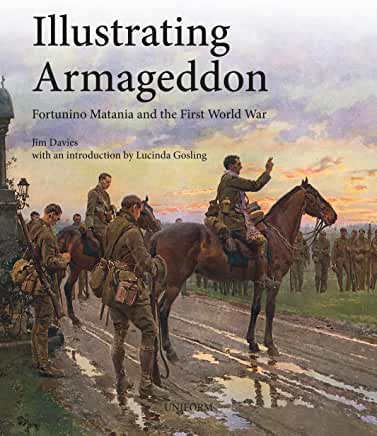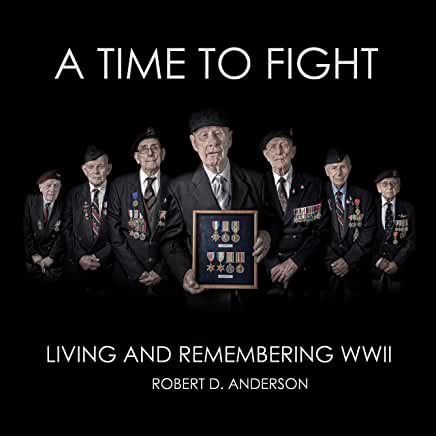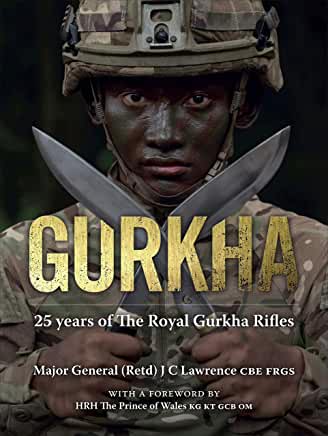Travel down a certain unprepossessing road on the Neuve Chapelle battlefield and you will come to one of those spots where the local highway maintenance people store salt, asphalt and other aggregates used to keep the roads in fine fettle.
The place I have in mind really doesn’t look like much, but if you were to take a minute to check out a sign placed on the low wall around it you will find yourself looking at a painting of soldiers gathered before battle and a description of the scene.
The date was 8th May 1915 when the 2nd Battalion of the Royal Munster Fusiliers received General Absolution from their padre, Father Francis Gleeson.
The four companies of the Munsters formed three sides of a square in front of a roadside shrine, an appropriate spot for the priest to do his work as their commander, Colonel Victor Rickard, looked on.
The painting offers a melancholy scene, because so many of the men on view, including Rickard, were killed at Neuve Chapelle.
The scene was described to the artist, Fortunino Matania, by one of the men present and his rendition became one of his best-known works.
The original is said to have been lost in the Blitz, but you can get a print of it from a nice lady in Cork.
This wonderful book by Jim Davies looks at the work of Matania during the Great War, when a large amount of his art appeared in The Sphere magazine. The illustrations are captivating. They offer a sense of realism that many other Great War pieces fail to convey.
Matania was a truly fine illustrator unafraid to show the grim reality of war; although much of his output presents just the sort of patriotic spin readers of The Sphere demanded.
There seems to be have been no facet or theatre of war that defeated his vision. The works are dramatic, beautiful and highly detailed.
Fortunino Matania was born in Naples in 1863 where his talent as an illustrator was noted. He moved to London, producing fine work for The Sphere before the Great War erupted in 1914. Matania became a war artist and it is this work which is celebrated in Jim Davies’ book.
After the war he continued to produce a vast amount of work and he went on to create many fine illustrations during the Second World War, shrugging off the ignominy of being interned as an enemy alien by his British hosts after Mussolini declared war on Britain in 1940.
He passed away in 1963 and is buried in London.
If you love art and military history this wonderful book offers all you can wish for. The author has curated a stunning collection of Matania’s work, taking care to acknowledge the work of fellow historians who have done much in recent years to lift the haze of obscuring a truly great artist who had become almost unknown.
I certainly had never heard of him until a few years ago and, rest assured, that moment by the side of a French road on a grey autumnal day will remain special to me for years to come.
Happily, this awesome book gives me all of Matania’s Great War inspired genius in one huge volume. I am most grateful to Jim Davies for making this happen.
An instant classic; this volume is highly recommended.

ILLUSTRATING ARMAGEDDON
Fortunino Matania and the First World War
By Jim Davies
Uniform
ISBN: 978 912690 01 5
The photographer Robert D Anderson takes us into the modern era of his chosen medium with this intriguing book where he makes portraits of people who experienced the Second World War.
He places them alongside images of re-enactors depicting elements matching the veterans’ own stories. It cannot be emphasised enough that a great many people who knew the war are in their twilight years. My own mother who saw the London Blitz at first hand is getting on for 91 years of age.
She was a teenager working in a factory making officers shirts by 1945. The point being the people of fighting age are rapidly fading away.
I am reminded of a book I treasure depicting Normandy veterans which appeared back in 2014 and I’m sure the photography featured in it influenced many similar projects that followed. For me, this book carries some of the spirit, but the approach is much different.
I am bound to say it will either work for you, or it won’t. The accounts left by the veterans add a great deal of substance and there is much to take from the project.
All in all, this book is a fine tribute to people some refer to as the Greatest Generation. The design is crisp, delivered in a washed tone reminiscent of the photography of Spielberg’s WW2 epics. It would make a great Christmas stocking filler.

A TIME TO FIGHT
Living and Remembering WWII
By Robert D Anderson
Uniform
ISBN: 978 1 911604 93 8
The final book of our trio looks at the history of a special part of the British Army – the Gurkhas. The author takes us through the period since the current regiment was formed from the amalgamations of several units at a time when the British Army was being reduced inside following the end of the Cold War.
In a sense, defence cuts are an awkward thing to find a silver lining from; but the author does this by showing what a superb bunch of people the Gurkhas are.
The author looks back further to the time when the Gurkhas became part of British forces and we see some of the heroes from down the years.
I had the honour of meeting a Gurkha VC some years ago. He was a very elderly man at the time, and I don’t think he was enjoying the circus surrounding him, but he exuded much of the magic of the soldiers from Nepal and there was a steely look in his eye that made me feel quite insignificant. I was in awe.
Given its timeframe, the book spends a lot of time looking at modern operations where Afghanistan dominates. But the author also takes care to show less salubrious episodes, notably over the problems surrounding the treatment of Gurkha veterans and their rights of residence in the United Kingdom.
By taking on these matters the author gives his work the kind of credibility we should all admire.
The son of a good friend of mine is an officer serving with in the Gurkhas and she is very proud of this connection to such a legendary organisation. So she should be!
The book is as entertaining as it is informative while the illustrations are superb. The author presents a solid history of a much-admired fighting force which will be with us for years to come.
The Gurkhas are an essential part of Britain’s armed forces and this book is a celebration of the fact. Great stuff.

GURKHA
25 Years of The Royal Gurkha Rifles
By Major General (Retd) JC Lawrence CBE FRGS
Uniform
ISBN: 978 1 912690 23 7
